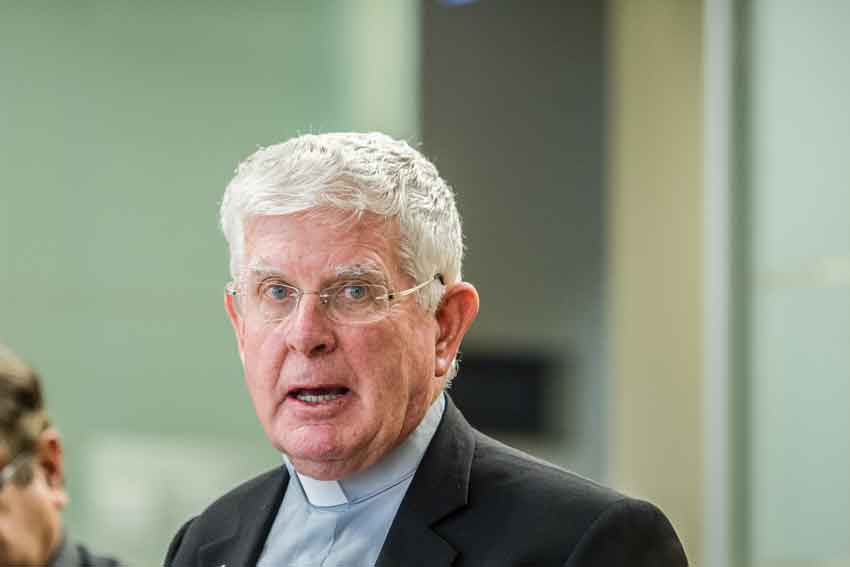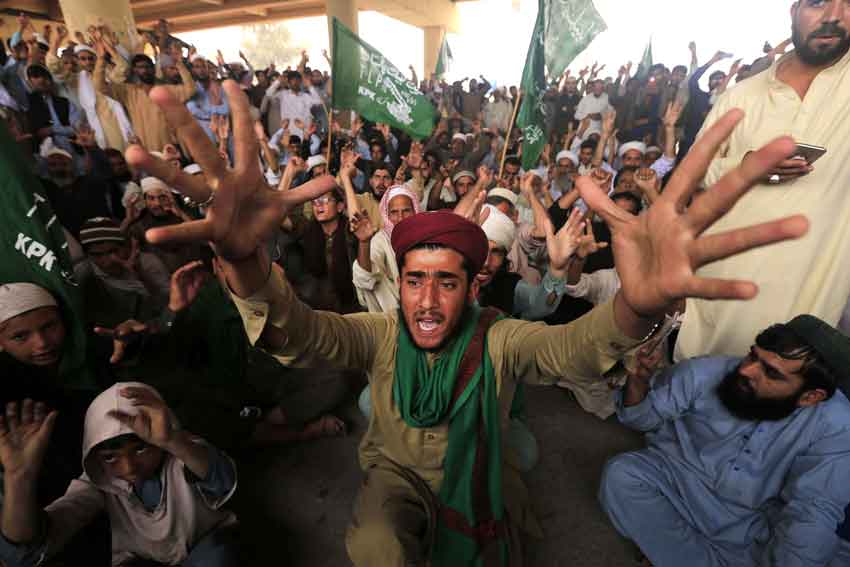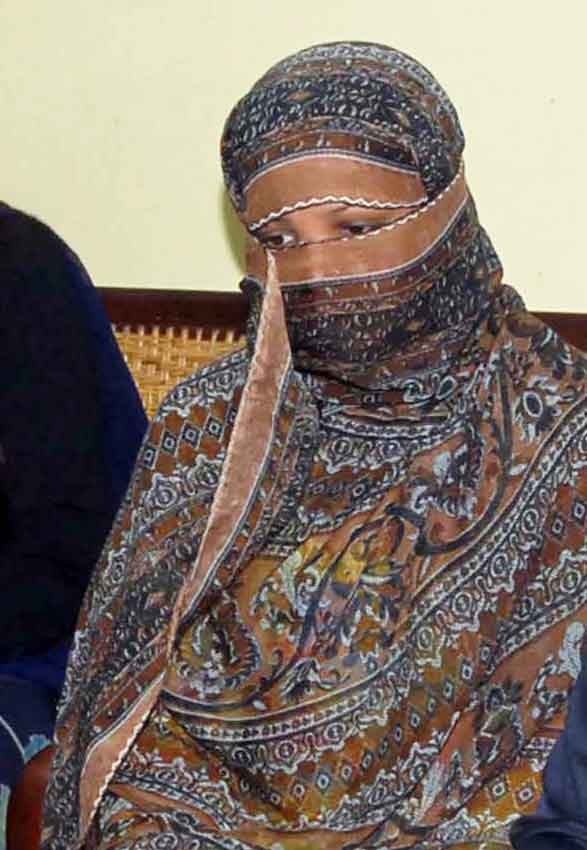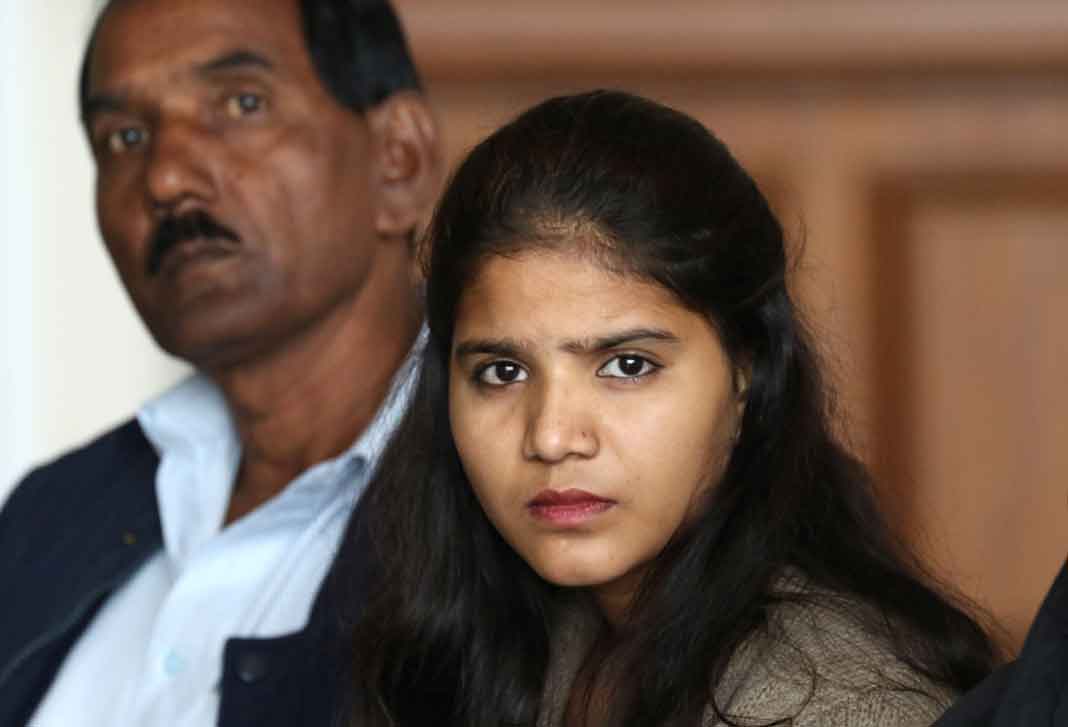
Asia Bibi has been released from death row and prison in Pakistan and is now under heavy protective guard in a secret location with her family, a long-time Catholic missionary intimately involved with negotiations in Pakistan about her case has reported.
“She’s out of jail in a secret location in Pakistan – she’s not incarcerated, not in jail. The decision of the Supreme Court of Pakistan given on 31 October was that she was to be released immediately. She is being protected.
“Her security is obviously a matter of huge concern for the Pakistan Government,” Father Robert McCulloch, an Australian Columban missionary told The Catholic Weekly, newspaper of the Archdiocese of Sydney, Australia.
Speaking in a telephone interview from Rome on 1 November, Fr McCulloch, the Columban Procurator General in Rome, told The Weekly the decision to free Asia Bibi had also set a ground-breaking legal precedent for the country.

“I’m very positive about the situation and we can take a lot of heart from what new Prime Minister Imran Khan said yesterday at 7.15pm Pakistan Time,” said the priest who spent 34 years in the country working in education and healthcare from 1978 to 2011.
In a televised broadcast to the nation, Prime Minister Khan attacked Muslim fundamentalist leaders calling for Asia Bibi to be killed following her successful appeal to the Supreme Court.
He told Pakistanis that Islamic hardliners were “inciting [people] for their own political gain”, and said they are “doing no service to Islam”.
“I think this is very important because – given the Prime Minister’s statements in the recent election campaign – we never knew exactly where he stood on the question of religious freedom in Pakistan,” Fr McCulloch said.
He said he had just returned from a visit to Pakistan stretching from 4-22 October which had also involved meetings and discussions in Islamabad with senior government ministers and legal representatives on the Asia Bibi case.

He said that when Pakistan’s Supreme Court announced on 8 October it had reached a decision but was reserving it, he concluded it was clear that Asia Bibi would be released.
“What I’ve understood is that since 8 October when the Supreme Court made its decision until yesterday when the decision was announced, time was given to inform the military and PM and key departments in the federal government of the contents of the decision,” Fr McCulloch said.
“It ensured that the concerned, responsible parties had an opportunity to prepare to control the situation when the announcement was made – that would have included the army,” he said, adding that nothing of consequence in Pakistan happens without the consent of the military, a decisive influence in Pakistan’s political dynamic.
The fundamentalist reaction against the decision to acquit Asia Bibi has come from the TLP, an Islamic political party known for organising countrywide street power and large scale protests in opposition to any change in the blasphemy law of Pakistan.
“That expected reaction came. Its leader [Khadim Hussain Rizvi] came out and viciously attacked the Supreme Court, the Army and Parliament,” Fr McCulloch said.

The delay between the announcement of a decision and its revelation on 31 October was significant.
“It was almost as if the authorities were waiting for him to make that sort of statement. It gives now those three institutions the opportunity to clamp down against this cancer of fundamentalist religious violence and opinion that’s eating into the heart of Pakistan.”
The Supreme Court’s decision was extremely significant for other reasons, he said.
“A very important precedent in law has been established and set which will be to the benefit of the thousands who are incarcerated in Pakistan because of accusations of blasphemy,” he said.
While Asia Bibi is a Christian, the majority imprisoned under Pakistan’s blasphemy laws are Muslims whose cases often emerge from professional enmity, jealousy, business rivalry and other factors; human rights organisations have claimed for decades that Pakistan’s blasphemy laws are regularly abused to settle vendettas.
Because the charges against her were not made under Sharia law but under a form of Westminster law where precedent is important, the Supreme Court’s decision will now benefit many more people in a similar situation.
“She was suffering on behalf of many, many people who have been condemned and her suffering will be a point for freedom for both Muslims and non-Muslims because of this case,” he said.
“The Pakistan Government, at the highest levels, had realised that the Asia Bibi case is crucial for the international reputation and moral standing of Pakistan – and this has been reiterated by Pakistan’s diplomats in many countries and government officials in Islamabad.
“It would have been a disaster for Pakistan if this appeal had not been upheld.”
